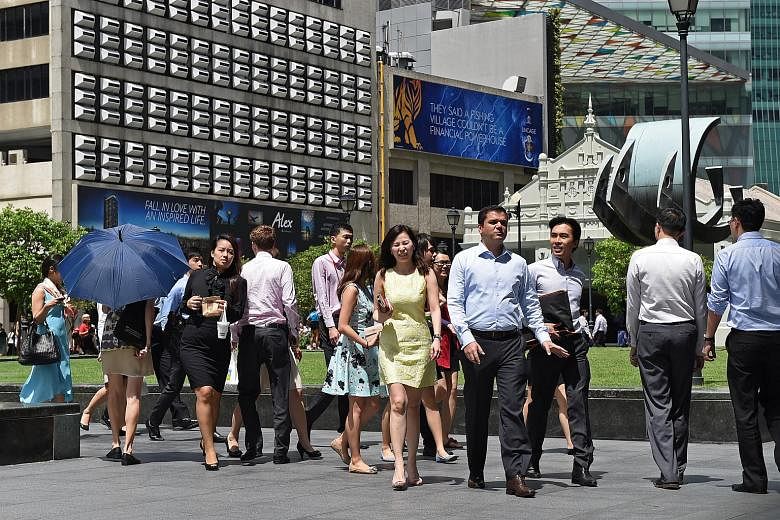Wage subsidies will make older, local white-collar job seekers more attractive to companies, but companies are unlikely to create new positions for these professionals, managers and executives (PMEs).
Instead, they will focus on a candidate's skills and relevant experience in deciding whether to hire him for existing vacancies, 10 companies told The Straits Times.
They were responding to Manpower Minister Lim Swee Say's announcement on Wednesday that the Government will subsidise the wages of older local PMEs who have been unemployed for at least six months, to encourage companies to hire them. Under this two-year pilot programme which kicks off on Oct 1, a company will receive between $7,200 and $12,600 a year for hiring a jobless PME aged between 40 and 49; and between $14,400 and $25,200 a year for hiring an unemployed PME aged 50 and above.
In addition, changes will be implemented to make it tougher to hire foreign professionals. For example, firms may be asked to show proof that they had tried to hire Singaporeans for vacancies.
According to the Ministry of Manpower's latest labour force report, there were around 9,000 Singapore citizens and permanent residents aged 40 and above who were unemployed for at least 25 weeks as of June last year.
"The scheme aims to give out-of-work PMEs, who struggle to find employment, a leg-up," said West Coast GRC MP Foo Mee Har, a member of the Government Parliamentary Committee for Manpower.
Companies said that they welcomed the additional measures to boost local employment. "It is an instrument to level the playing field between young and old, and between older local PMEs and foreign talent," said Mr Philip Kwang, managing director of high-tech lighting company Facade Global Master.
But their chief concern is whether the candidate is a good match in terms of skillsets, experience and personality. "It is expensive to train new workers, so if I'm hiring someone, I am looking to do so for the long term," said Ms Angeline Tan, who runs clothesline firm Ezzi Living.
The stakes of hiring someone are higher for small- and medium-sized enterprises such as her company, where the resources are limited, Ms Tan added.
Mr Victor Tay, chief operating officer of the Singapore Business Federation, said that for the scheme to work, it takes "two hands to clap".
Ms Ong Siew Kim, senior general manager of credit bureau DP Information Network, said: "After one year, we will assess, and the employees have to earn their salary in their own right. They have to be an asset to the company."

